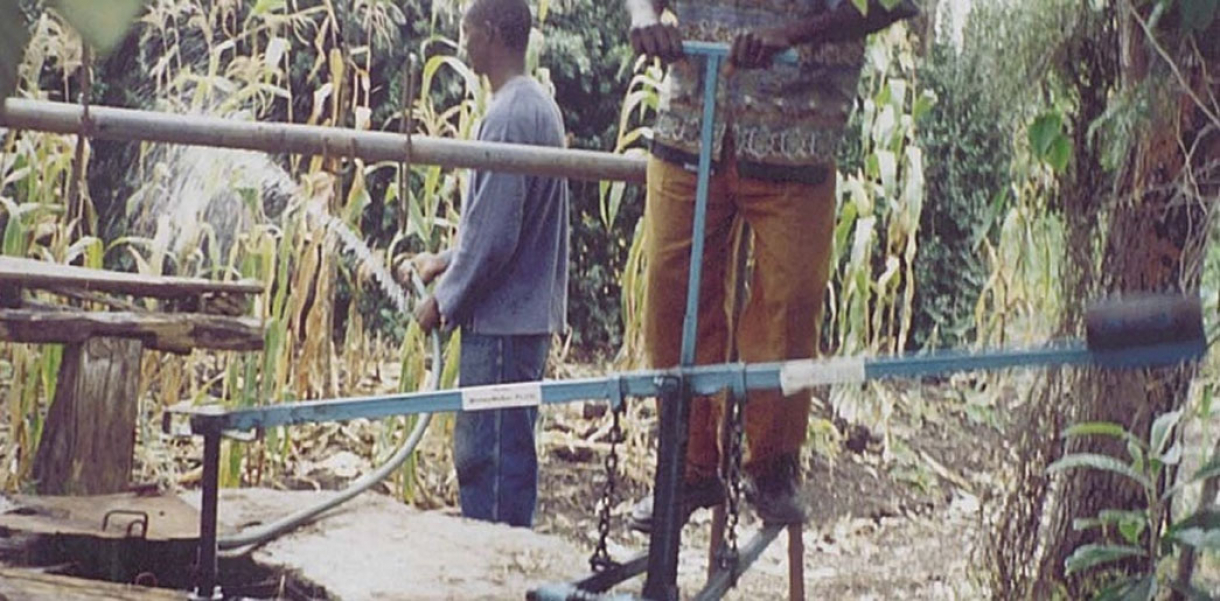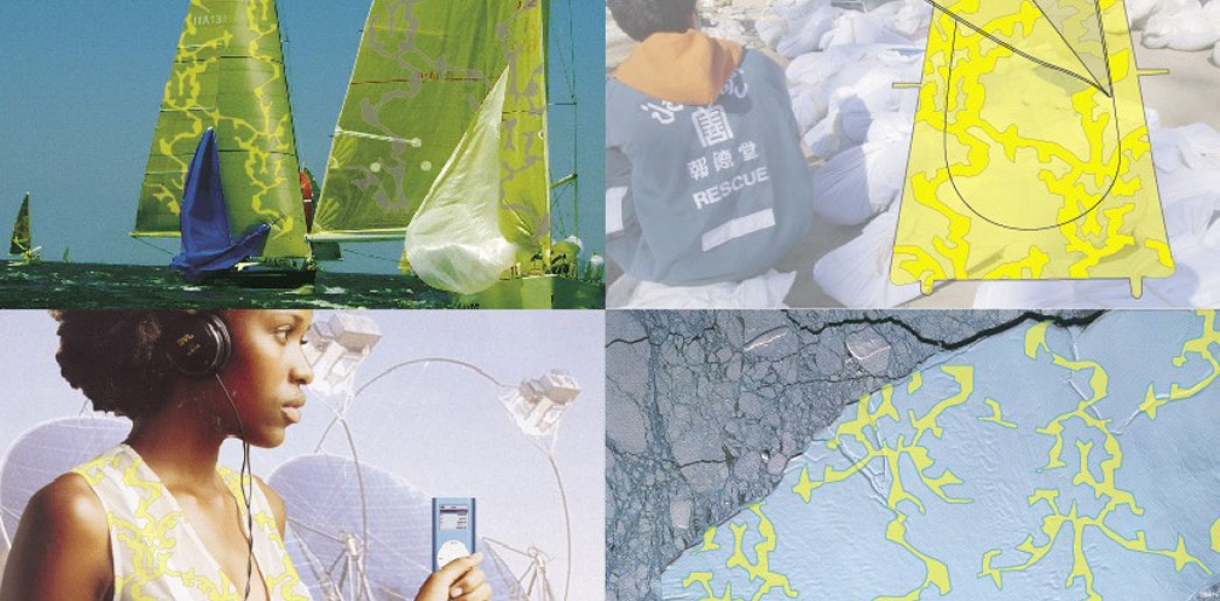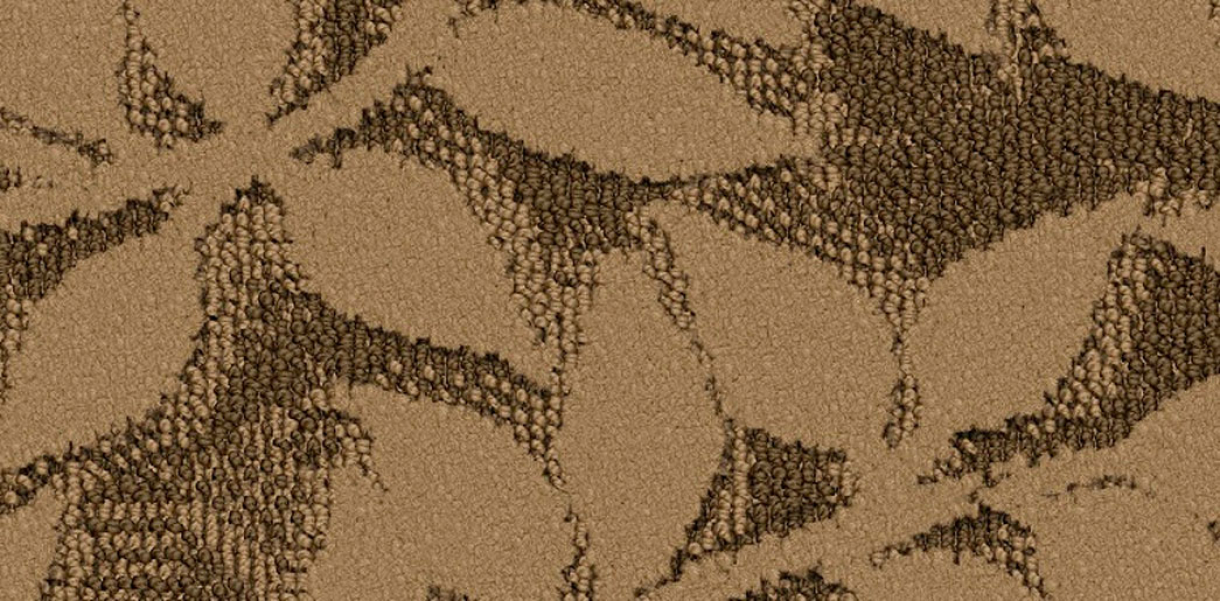Functionality and use of design
"The ApproTec pump is a design that impressed all of us deeply through its minimal use of materials, purposeful utility, design for use of local materials, and its ability to be easily transported by bicycle. Its ability to utilize deep well holes that can be readily drilled gives small crop growers the ability to expand the diversity of their crops and greatly diminishes their dependency on seasonal rains. This is an outstanding example of sustainable design that contributes to an increase in the quality of life for many. It truly touched our souls as designers." –Ravi Sawhney, IDSA, President/CEO, RKS Design.
How did this design improve life?
ApproTEC is a nonprofit organization based in Kenya that develops and markets new technologies for local entrepreneurs to establish new small businesses. One example is the development of human-powered water pumps that allow African farmers to continue to grow vegetables into the dry season, and sell the excess to pay for food, water, medicine, and school fees for their family.
IDEO worked with ApproTEC to develop a pump for wells as deep as 18 meters that can lift water up to 7 meters above the pump, enough to irrigate a small-scale farm of about a half-acre. The design team addressed several constraints in the design, manufacture, and use of the Deep Lift Pump:
- Uses human power, and accommodates barefoot users
- Costs less than $150 but withstands harsh environment
- Is small and light enough to carry on a bicycle or public transportation
- Uses materials and manufacturing techniques common to Kenya, such as arc welding, inconsistent sizes of mild and galvanized steel, and plastic pipe
- Installs and runs without special knowledge or tools, and requires little to no maintenance
- Pumps efficiently despite loose tolerances
The pump works with a leg-operated treadle, using a motion similar to exercising on a stair-stepping machine. This drives a piston in the bottom of the well up and down which lifts the water up the cylinder and pressurizes it through a hose. The pump's key innovation is its long, loose-fitting piston, which doesn't require the tight, sliding seals that would be nearly impossible to create in Kenya. This brings a useful tool to a wider group of African farmers (previous ApproTEC pump designs worked to a maximum depth of 7 meters) to significantly improve their lives.
Drawbacks of life improvement
The main questions about the promotion of technologies for economic development come from environmentalists. When it comes to micro-irrigation technologies they are concerned about the depletion of ground water and the overuse, salination and degradation of agricultural land. While these are valid concerns, the challenge for any of us promoting technologies for economic development is to identify those technologies and those business models that produce the maximum economic good with minimal environmental impact.
ApproTEC’s MoneyMaker Deep Lift Pump fits this bill. Because this pump is manually operated, users are unlikely to apply any more than the minimum amount of water required to grow their crops – it is simply too much work. And because they are pressure pumps, the water is sprayed onto the plants through a directed hosepipe, which is much more water efficient and much less likely to cause soil salinity than is channel or flood irrigation. Finally, because it can only pull water from eighteen meters deep, this pump only uses ground water and water from shallow aquifers, which are replenished every rainy season and thus difficult to deplete.
While the depletion of nutrients in the soil due to over farming is a concern, we have found that the introduction of micro-irrigation often encourages a diversity of crops to be grown on the farms. Many farmers will choose to grow a staple food (such as corn) in the main rain-fed season and then switch to irrigated crops in the long dry season. Additionally, as the farmers have greatly increased incomes they can now afford to add extra nutrients and compost to their fields. In addition, irrigation has other environmental benefits. The horticultural crops create micro-climates, sequester carbon, and prevent soil erosion.
Most importantly, environmental protection is rally a luxury that people cannot afford until their basic needs are met. Only when people can feed, look after and educate their families will they protect their local environments. Before that they will chop down and sell every last tree just to try and survive.
Research and need
The research involved a three stage process. First, the market in Kenya was researched to determine the product requirements, which led to detailed design criteria. Original concepts were tested in Kenya. Then ApproTEC and IDEO jointly did an intensive proof of concept. Brainstorming sessions were held, and many prototypes and concepts were built and tested. The final design was selected and underwent further prototyping and testing. Finally, this design was finalized in Kenya for local production and local materials.
The concept came from rope and washer pumps. The advantage of these is that they are very low friction, making them suitable to human-powered inputs. The disadvantage is that they require two cylinders, which increases cost and makes it difficult to use on a small bore hole. The goal was to develop a similar low-friction pump that uses a single cylinder.
Here are the design criteria:
Draw water from wells as deep as 18 meters and lift the water up to 7 meters above the pump to irrigate a small-scale farm of about a half-acre.
- Uses human power
- Accommodates barefoot users
- Costs less than $200
- Withstands a harsh environment
- Can be transported on a bicycle or public transportation
- Uses materials common to Kenya
- Installs and runs without special knowledge or tools
- Requires little to no maintenance
Designed by
Ben Tarbell, Opher Yom-Tov, Jon Kaplan and Chris Kurjan, Martin Fischer, Alan Spybey & Mohamed Swaleh - USA




